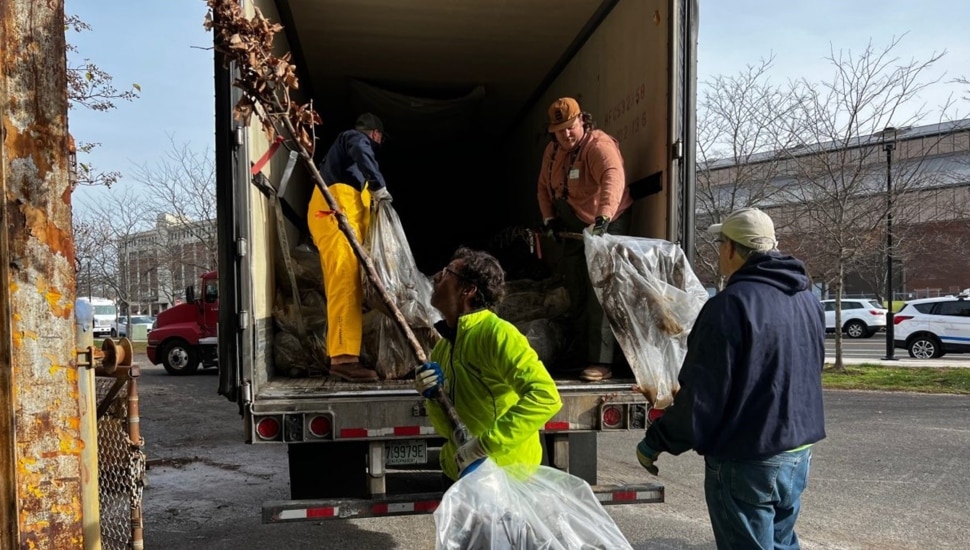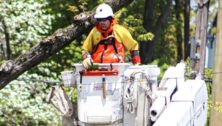PECO Takes Action to Reduce Urban Heat Islands Across the Region

Philadelphians felt the heat this summer, with numerous heat waves that left residents looking for relief. But now that cooler temperatures have finally arrived, most of us have quickly forgotten about the extreme temperatures that we experienced only weeks ago and the impact that they have on our communities.
In certain areas of the city — known as urban “heat islands” — a lack of tree cover and green space allows man-made features such as paved streets, parking lots, and rooftops to absorb heat from the sun and warm the surrounding area to even higher temperatures. This “heat island effect” is often experienced in underserved, urban communities and neighborhoods where air conditioning is not always accessible.
What are heat islands?
Buildings, roads, and other infrastructure absorb and re-emit the sun’s heat more than natural landscapes such as forests and bodies of water. Urban areas in which these structures are highly concentrated with limited greenery, become “islands” of higher temperatures relative to outlying areas. These pockets of heat are referred to as “heat islands.”
According to the Environmental Protection Agency, a review of research studies and data found that in the United States the heat island effect results in daytime temperatures in urban areas about one to seven degrees higher than temperatures in outlying areas and nighttime temperatures about two to five degrees higher. Humid regions (primarily in the eastern United States) and cities with larger and denser populations experience the greatest temperature differences — making our City of Brotherly Love a prime candidate.
How do they impact us?
Heat islands can affect a community’s environment and quality of life in various ways:
- Increased energy consumption, higher temperatures often come with a higher demand for air conditioning
- Elevated emissions of air pollutants and greenhouse gases
- Compromised human health and comfort
- Impaired water quality
What is PECO doing?
With all of this in mind, PECO is taking action to reduce urban heat islands across the Greater Philadelphia region. Trees and all things green are vital to our region’s transition to a clean energy future and are an important part of PECO’s ongoing commitment to protect and preserve the environment. Increasing tree and vegetation cover lowers surface and air temperatures by providing shade and cooling through evapotranspiration. Trees and vegetation can also reduce stormwater runoff and protect against erosion.
Last year, PECO announced ReLeaf, an increased investment in tree planting and education across the Greater Philadelphia region to plant one tree for every tree removed as part of electric reliability maintenance. PECO is achieving this in part through our long-standing partnership with the Pennsylvania Horticultural Society (PHS) and other community groups. Part of our investment goes directly towards PHS’s Tree Tenders, a volunteer program that has planted 23,000-plus trees across southeastern Pennsylvania.
Planting trees now, while its cooler, gives them time to grow and establish their roots, making it easier on them to adjust to extreme heat or drought in the summer.
For more information about how you can get involved in planting trees to reduce our region’s urban heat islands, please visit the Pennsylvania Horticultural Society. To learn more about PECO’s overall efforts to create a cleaner, brighter future for our customers and the communities that we serve, please visit PECO’s Path to Clean.
________________
PECO is Pennsylvania’s largest electric and natural gas utility, delivering power to nearly 1.7 million electric customers and more than 545,000 natural gas customers in southeastern Pennsylvania. PECO is a subsidiary of Exelon Corporation, the largest fully regulated utility company in the nation with more than 10 million customers.
Connect With Your Community
Subscribe for stories that matter!
"*" indicates required fields
























